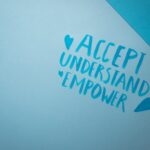Forgiveness and trust are the ultimate cornerstones of healthy and fulfilling relationships. Whether it’s between couples, friends, or family members, the ability to forgive and rebuild trust is what keeps relationships strong through life’s inevitable challenges. But why is forgiveness so critical? And how does trust, once broken, find its way back?
This blog unpacks the science behind forgiveness and trust—how these concepts affect our mental and emotional well-being, the psychology and neuroscience that govern them, and actionable strategies to heal and deepen connections. By the end, you’ll understand why these twin pillars are not just emotions, but essential skills for cultivating happy and durable relationships.
The Benefits of Forgiveness in Relationships
Forgiveness is often seen as a gift we give to others, but it’s equally a gift to ourselves. Research in psychology reveals that forgiveness does more than merely heal emotional wounds—it can transform lives in profound ways.
Psychological and Emotional Benefits
When couples choose forgiveness over resentment, they unlock numerous psychological benefits. According to Dr. Everett Worthington, a leading forgiveness researcher, letting go of past grievances lowers stress levels and even reduces symptoms of anxiety and depression. Resentment acts as a heavy emotional burden, while forgiveness provides liberation, allowing individuals to refocus their energies on the positive aspects of the relationship.
But here’s what’s even more fascinating—studies suggest that people who forgive are less likely to experience physiological stress responses like increased heart rate and blood pressure. Essentially, forgiveness lowers your overall stress, making you physically and emotionally healthier.
Forgiveness and Relationship Longevity
Couples who actively practice forgiveness exhibit higher levels of relationship satisfaction. Why? Unresolved grudges erode intimacy and communication, creating a barrier between partners. Forgiveness clears these barriers and creates space for vulnerability, an essential component of lasting relationships.
Trust, Its Fragility, and the Science Behind How It Breaks
Trust is the bedrock of any meaningful relationship. It takes weeks, months, or even years to build—but can crumble in an instant. Understanding why trust breaks can offer valuable insights into how it can be restored.
The Anatomy of Trust
Dr. Brené Brown, a renowned researcher, defines trust as a collection of small moments when one partner consistently shows up for the other. These moments of reliability and honesty form the foundation of trust over time. Think of trust as a bank account—positive actions result in deposits, while broken promises or dishonesty result in withdrawals.
How Trust is Broken
Trust often breaks when there’s a significant betrayal, such as infidelity or lying. However, smaller betrayals—like failing to follow through on promises—can also accumulate, leading to the erosion of trust. The brain plays a significant role in this process. When trust is broken, the amygdala (the brain’s fear centre) goes into overdrive, making us more vigilant and hesitant to trust again.
Forgiveness and Trust as Brain Functions
Interestingly, forgiveness and trust are not just emotional concepts—they also have physical, and neurological correlates.
The Role of the Brain in Forgiveness
Forgiveness triggers activity in the prefrontal cortex and anterior cingulate cortex—the areas of the brain responsible for empathy, decision-making, and emotional regulation. This suggests that forgiveness is as much about compassion for others as it is about cognitive processing. Think of it as a workout for your brain’s emotional intelligence.
Trust and Oxytocin
Trust, meanwhile, involves oxytocin, often dubbed the “bonding hormone.” Oxytocin is released during acts of intimacy and cooperation, signalling safety and strengthening emotional bonds. However, when betrayal occurs, the brain shifts from oxytocin-driven bonding to a cortisol-driven stress response.
Recognizing these brain dynamics can help individuals rebuild trust by focusing on behaviours that stimulate oxytocin release, such as consistent communication, physical touch, or engaging in shared activities.
Rebuilding Trust and Fostering Forgiveness
Though a difficult process, rebuilding trust and fostering forgiveness is possible with effort and clear strategies. Here’s how you can start piecing it back together, step by step.
1. Acknowledge the Hurt
Before anything else, both the offender and the offended must acknowledge the pain caused. This step requires honesty and empathy to create a safe space where emotions are validated.
2. Commit to Transparent Communication
Trust thrives on transparency. Openly discussing concerns, boundaries, and expectations speeds up the healing process. Using “I” statements rather than accusatory language is particularly helpful when expressing feelings.
3. Practice Consistency
Consistency is the most effective way to rebuild trust. A partner who repeatedly shows commitment and follows through on promises slowly re-deposits into the emotional trust bank.
4. Seek Professional Guidance
Relationship counselling or therapy can provide the structure and techniques needed to facilitate forgiveness and trust-building. A trained counsellor can help resolve underlying issues while maintaining neutrality.
5. Share New, Positive Experiences
Shared experiences strengthen bonds. Activities like a weekend getaway, starting a hobby together, or even daily rituals like coffee time can lay new foundations for trust to grow.
Experts Weigh-In
According to Dr. Sue Johnson, a pioneer in emotionally focused therapy, forgiveness and trust-building require intentional actions that signify “repair” in the relationship dynamic. She emphasizes the importance of behaviours that reassure one’s partner of their value and commitment.
Real-life stories from couples provide shining examples of this principle. Many couples report that creating regular check-ins where both partners can express feelings and track progress has significantly helped rebuild their connection.
Why Forgiveness and Trust are Relationship Essentials
The science is clear—healthy, lasting relationships rely heavily on forgiveness and trust. These skills are not just tools for resolving conflict; they are the lifeblood of meaningful connection.
Whether you’re a couple navigating a tough moment, a mental health enthusiast looking to expand your understanding, or a counsellor guiding others, fostering forgiveness and trust is key to strengthening all relationships.
Take the first step today. Invest in these skills, and watch your relationships thrive.





















0 Comments